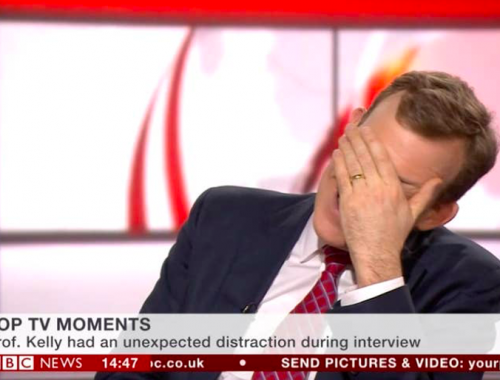So you think you’re a S.T.A.R?

So, 2nd blog post. This time, it’s interview time. The questions start running through my head on the walk up to the interview room. Have I prepared enough? What sort of questions are these lot going to ask me? Am I going to be able to be quick on my feet or am I just going to have a mind-blank and screw the whole thing up? Well, I soon found out, and it turns out, I did alright! To reflect on how I did in my interview session I’ve found that Gibb’s Reflective Cycle is going to be the best way to monitor how I performed.

Description
As part of our work-based learning module in Semester 2, I participated in a simulated interview session, in both an interviewer and interviewee role. Our group consisted of 5 people, meaning each person faced a panel of 4 interviewers who had around 3 questions each to ask the interviewee. After each interview, interviewers were given 5 minutes to compose feedback for the interviewee. In preparation for this session, we had to chose and research a real job that was up for application and prepare ourselves as if we had just been offered an interview for that role. The role I chose was an opening the in BBC for a Journalism Assistant.
Feelings
I couldn’t tell you prior to the simulated interview session how I felt about job interviews simply because I have never had one. That’s right. Never. How I made it to 20-years-old without being interviewed for anything is a mystery in itself. With that being said however, I have to say I was actually excited for the interview. Coming into the interview, I was well-rested, had breakfast so I was energetic, which was good as the session began at 9am sharp. I had prepared questions for my group members’ interviews and went over different kinds of questions I may be asked, such as competency questions, strength-based questions and even appropriate questions I could ask back to the interviewer.
On the way to the interview that morning, I listened to two podcasts about interview skills and etiquette, so it would be fresh in my head and give me a few last minute tips and even gave me an insight into aspects of the interview process I’d never considered before, for example how to research the company you’re applying to work for and what sort of things to look out for, such as do they have any anniversaries coming up, is there an annual event they’re famous for holding? The podcasts were both on Spotify, one by Interview Boss called The BEST way to prepare for a job interview and the other from Career Lantern, called Using the STAR Method in Behavioural Job Interviews – Podcast CL111. Both definitely worth the listen when preparing for an interview.

Evaluation
Based on how the feedback I received on my performance, the interview panel gave me excellent feedback, mentioning comments like how I seemed confident, my language was clear and intelligible, how my answers were concise and well-connected to the questions and that my overall presentation and ability to give relevant answers to the questions was very good.
I however, felt I could have been critiqued a bit more, or felt that I didn’t deserve that gleaming review that I received. In my own head, I thought I did well, but my “confidence” was completely fake, which I’m not sure is good or bad but if it came across well then maybe it’s alright? I felt like I kept repeating myself in my answers. I’m almost certain “but I’m willing to rise to the challenge” came out of my mouth at the end of most questions. I attempted to use the S.T.A.R method to answer the “Tell me about a time where..” question I got, I was able to answer the question however nerves made me half forget what way to structure my answer. I felt it came out very vague and non conclusive, but it must have came across alright.
So, from that, what I’ve learnt is to fake it til’ you make it (my confidence that is, not my answers, because that would not be good).

Analysis
To make sense of this whole situation, I feel that based off of my own example of how an interview goes, preparation is important. “If you fail to prepare, prepare to fail.” I’ve heard that quote many times right from early high school to now, but honestly, it couldn’t be more true or well-suited to the interview process. Preparation is key. Even for the smallest of things like when they ask you to tell them a bit about yourself. How you respond is so important. You could tell them you like to go to the cinema on Fridays and that your favourite food is pizza. Is that information true? Probably. Is it helpful into telling, who you’re hoping to be your future employer, how you’re going to be a good fit for their company? Absolutely not.
That is just one example, but you get the idea. I was aware of this rule, but it’s kind of an unwritten rule. I needed to get to know myself before I tried to explain to a panel of interviewers who I am and what I can do for them.
Conclusion
To conclude, I found this simulated interview process to be helpful, but not from the aspects that I expected the help to come from. Being able to access the interview from both sides, as interviewer and interviewee was an interesting and new take on interview skills that I had never experienced before.
As the interviewee, you feel the pressure is on you, you don’t know what they’re going to ask you or how you might respond to a question you’ve maybe never even heard of. As the interviewer, you get a whole new perspective on the interview process. You know this person sitting in front of you is nervous inside and doesn’t know what you’re about to ask. Whilst picking out the questions you’re going to ask them, you realise why you’re picking the questions you are and why they are good questions to ask to find out more about the interviewees character. I soon realised that’s all an interviewer wants to know. They know your qualifications and where you went to school and university, because you put that on your CV. They now just want to get to know your character, and so as an interviewer you pick questions that will enable you to find these things out (a very helpful thing to know!).
Action Plan
My plan of action for preparing for future interviews would be just to keep it up. I’m proud of how I did. I prepared well, I feel I focused my preparation on the right things, such as techniques of how to answer questions in a sufficient way that interviewers will appreciate, rather than revising every single question that I could ever be asked in an interview and trying to find an answer to it.
However, luckily I was left with an area for improvement comment, which strangely I wish I got more of. This could be because my interview panel giving the feedback were my classmates, and they were perhaps being too nice, but nonetheless, the comment was if I had a little more volume to my voice it would have been a stronger interview. I totally agree. Although I seemed confident, I obviously retreated slightly when facing harder questions to answer. I do tend to become quieter when I’m supposed to be hyping myself up, because I just find the whole blowing your own trumpet thing so cringe.
This is definitely something I will work on in the future and after this experience, i’m actually looking forward to my first official job interview. (Hopefully, I will not be eating these words when that time comes..).
Bibliography
Gibbs, G. (1988). Learning by doing: A guide to teaching and learning methods. London: Further Education Unit.
References
Smith, S. and Smith, E. (2021) Spotify. The BEST way to prepare for a job interview. The Interview Boss. 18/01/2021.
White, D. (2019) Spotify. Using the STAR Method in Behavioral Job Interviews – Podcast CL111. Career Lantern. 14/11/2019.
The Mind Blank
Mock Interviews
You May Also Like

The interview may have been simulated, but the anxiety was real!
21 February 2022
When the BBC thinks you live in the Atlantic – My Simulated Interview
17 February 2022
